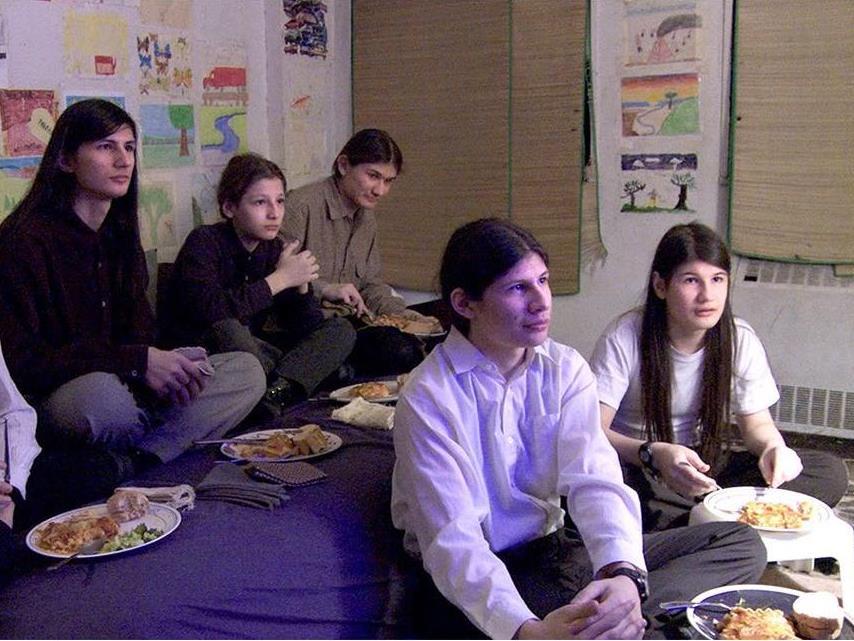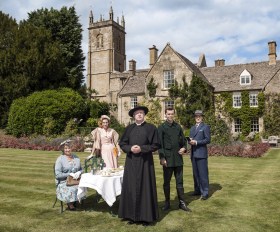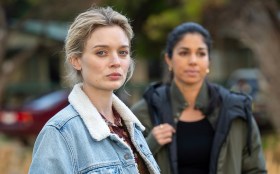Image: www.sff.org.au
In an apartment in Manhattan’s Lower East Side, six brothers, all teen-aged to twenty-something in years and longhaired in appearance, revel in the movies. If they’re not watching a film, Baghavan, Govinda, Narayan, Mukunda, Krsna, and Jagadisa are meticulously transcribing dialogue to write their own scripts, studiously colouring their own posters and cover art, or determinedly staging and shooting elaborate recreations. They boast a treasure trove of homemade costumes and accessories, as well as a significant pile of recordings of their efforts.
These siblings comprise the Angulo family, and though the sextet of sons live their lives in awe of the big screen, they’ve never actually seen any of their favourite films in a movie theatre. Like many cinephiles, their preferred pastime offers an escape; however the world they’re evading is unlike most others. The band of brothers, their younger sister and their mother all spend most of their days locked away in their humble home, with their father the keeper of the key to the outside. Some years, they’re allowed to venture beyond the front door nine times. Some years, they don’t go out at all.
In chronicling their tale for her first documentary, The Wolfpack, director Crystal Moselle has stumbled upon subjects most filmmakers can only dream of, confined drama that feels ripped from a fictional thriller, and an alluring movie-loving hook. Indeed, the many layers of the true tale are never less than captivating, all the more so for their truth. Here, a Peruvian patriarch creates his own brood with a Midwestern hippy he met at Machu Picchu, and then determines to shelter them from humanity’s nastiness. The clan is secreted away from the rest of mankind, filling their time with the films they adore, until the onset of maturity prompts them to rebel and explore. It’s a story not just about cinema, but of it, traversing the cult, hostage, and coming-of-age genres.
Alas, though Moselle’s content is as tailor-made for movie treatment as any documentarian could possibly hope for, not to mention littered with home video footage shot by the subjects themselves, The Wolfpack does little more than wander through their existence. The director appears caught by the same fascination she transfers to the audience, and dares not exceed its limits, even as her camerawork exudes energy and enthusiasm. Mostly, and messily, she allows them to talk about their experiences, without structure and without identifying the physically similar siblings. Indeed, it never escapes attention that her film, like the figures she follows, is constrained by its environment.
Of course, what shines in this display of secluded lives is the power of cinema. Footage of the Angulos’ own versions of the beloved flicks, akin to the low-fi replications seen in Be Kind Rewind, is a joy to watch, whether they’re remaking Reservoir Dogs, The Dark Knight, No Country for Old Men or Pulp Fiction. The sense that cinema has saved their otherwise gloomy days is both the ray of light their story needs, as well as an unshakeable and unsettling reminder of their insulated reality. Here, the tale exceeds the retelling; however as movies about movies fare, including its distressing tale of isolation and darker details only hinted at, The Wolfpack is as strong an illustration of the cathartic influence of film as any traditional celebration of the medium.
Rating: 3 out of 5 stars
The Wolfpack
Director: Crystal Moselle
USA, 2015, 89 mins
Sydney Film Festival
http://www.sff.org.au/
3 – 14 June
Actors:
Director:
Format:
Country:
Release:





